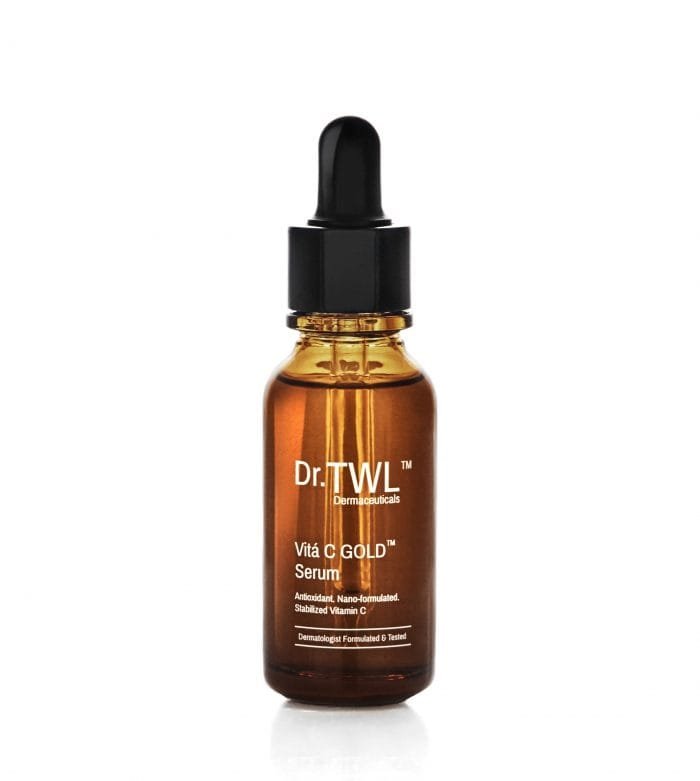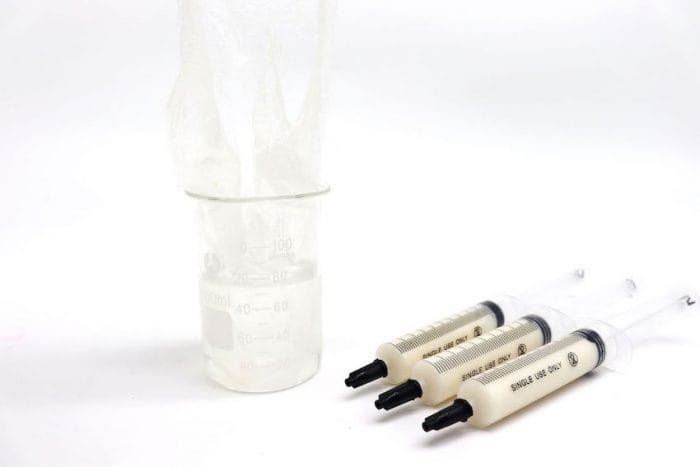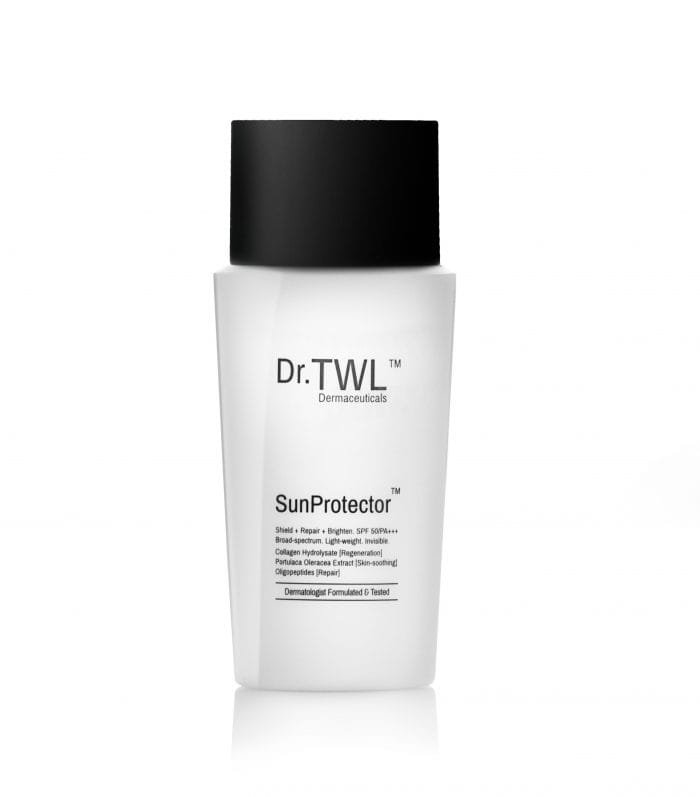Do you have pigmentation on your face that you wish to remove? Is it melasma, an age spot, a freckle, sun spot (solar lentigo) or evening a skin cancer? Perhaps it is a scar mark left behind by previous eczema, or pimples. We at TWL Skin, are a specialist dermatologist centre accredited by the Ministry of Health, Singapore. In this article, we ask Singapore dermatologist Dr.Teo Wan Lin about the best methods to treat pigmentation, in this case, melasma. If you do have a problem with pigmentation, we do recommend you seek a proper consultation and diagnosis by an accredited dermatologist. You can find an accredited dermatologist here
Be sure to check your doctor’s credentials to ensure you are seeing a true skin specialist. All dermatologists will be accredited by the Ministry of Health and you can search for them here.
What are some common remedies for melanoma pigmentation?
One common remedy would be the Cysteamine 5% cream (Cysteamine Cream®, ScientisPharma). It is used to lighten the skin in many hyperpigmentation disorders. It can be applied regardless of the amount of sunlight exposure. It is suitable for all skin phototypes, however, a slight burning sensation may be experienced at the areas applied.
What type of cosmeceuticals are available to treat melasma pigmentation?
Cosmeceuticals for treating melasma include phenolic compounds such as hydroquinone, mequinol, arbutin, vitamin C and vitamin E. Vitamin C may play a role as it is devoid of any side-effects, can be used alone or in combination therapy.
Controlled studies with vitamin E show insufficient evidence of effectiveness in treatment of specific dermatologic disorders. However, there is a large body of experimental evidence proving its photo-protective effects. More information on the role of Vitamin C in treating hyperpigmentation can be found here.
There is a recent safety concern regarding the use of hydroquinone for pigmentation. What is your view on it?
Hydroquinone can cause DNA damage as demonstrated in studies done in rodent models and cultures. This carcinogenic effect has raised concerns regarding its use. Due to this, the International Agency for Research on Cancer has placed hydroquinone as not classifiable as to its carcinogenicity in humans. The Food and Drug Administration (FDA) has even proposed banning over-the counter skin bleaching agents containing hydroquinone. However, it should be kept in mind that these studies were based on oral and parenteral doses and there have been no clinical studies or cases of skin cancer or internal malignancy related to topical use.
I would recommend using cosmeceuticals instead, such as the one in my range, the Radiance Fluide. It contains niacinamide, vitamin E, extracts of grape seed, aloe vera and plant antioxidants which all inhibit the activity of the tyrosinase enzyme involved in melanin production. This results in decreasing skin pigmentation. We also use a stable variant of vitamin C known as sodium ascorbyl phosphate which also inhibits tyrosinase. I have a new concept pharmacy where we incorporated a mask bar, vials of the cosmeceutical ingredient alpha-arbutin, is very effective at removing skin pigmentation and also goji berry extracts.
The key is we are limited by how much the skin is able to absorb the topical so the premise of the mask bar is to incorporate these customizable mask essences into a reusable sheet mask which increases the absorption of the cosmeceutical ingredients leading to better efficacy. The material that we have used is actually derived from proprietary plant technology. it is from the roots of a plant that has grown roots that is able to absorb enormous amounts of moisture and hold reservoirs of these micronutrients.
It is also ecologically friendly, it is grown from sustainable sources and it is also biodegradable. Unlike the commercial mask sheets which are extremely wasteful, the great thing about this mask is that it is reusable. You just wash it with anti-bacterial honey cleanser and you can use it up to 5 times with a different mask essence each time.
More information on the use of cosmeceuticals vs hydroquinone for treating hyperpigmentation can be found here.
What treatments would you recommend for melasma pigmentation?
In terms of a treatment that can deliver quick and long-lasting visible results, there is no easy answer. For prescription medication such as retinoids and hydroquinone, the effects are often dramatic and fast. However, in terms of how long-lasting it is, it really depends. I usually make the switch from prescription medication to cosmeceuticals after a maximum treatment duration of 3 months. The prescription items always have side effects and using hydroquinone for longer than 3 months can lead to a condition called ochronosis which is paradoxical hyperpigmentation due to the use of hydroquinone.
In terms of long-lasting results, I feel that it is important to reinforce a skincare regime with cosmeceutical active ingredients. Even if you have been given the prescription item by your dermatologist, beyond 3 months, you really should get started on anti-aging cosmeceuticals which contain active ingredients like arbutin, kojic acid, niacinamide and plant-derived antioxidants like grade seed and aloe vera. These have all been proven to help in inhibiting the process of the skin producing pigmentation. In addition, one should never forget the use of a medical-grade sunscreen being the cornerstone of prevention and maintaining the results you have achieved with any treatment.
In my practice, my patients with hyperpigmentation, if its melasma or post-inflammatory hyperpigmentation, they undergo a q switched laser known as 1064 q switched laser toning device and this is in combination with either prescription medication (retinoids and hydroquinone) and also cosmeceuticals like vitamin C and medical-grade sunscreen of SPF 50 which blocks against UV A and UV B.
For targeted legions such as sunspots and freckles, I use a wavelength 532nm laser which helps to remove the pigment spots after just a single session although multiple sessions are usually required to completely remove it. Again, the recovery process is heavily dependent on the skincare because how the laser works is by injuring the skin and prompting the skin cell to try to heal perfectly so as to remove the pigmentation.
In the absence of antioxidants topical skincare, it is unlikely that the results will be favorable. If sun protection is not used, the problem is very likely to recur again. Then again, I tell my patients whatever sun spots or pigmentation they develop now is not due to sun exposure in the last year or even in the last 2 years. It is probably way before that. Thus, the importance of starting a good skincare regime as early as possible.
On the restrictions on using brightening or whitening products, I think that it is important for any of these conditions to be revealed first by an accredited dermatologist. This is because what is just a brown spot to you, to the beautician, may actually turn out to be a skin growth, some early form of skin cancer. They start off as being pigmented spots and it is really terrible to just treat it as a cosmetic concern. An accredited dermatologist can pick that up.
There are some very dangerous skin cancers such as melanomas, a variant which is known as lentigo maligna, which really looks like pigmentation to a lot of doctors and to the laypeople. Dermatologists are trained to pick that up and it is actually a dangerous form of melanoma.
Nevertheless, over the counter brightening and skin- whitening products, if they have gone through the correct authorities such as the Health Sciences Authority or DFTA, they would not contain prescription medications that are prohibited to be in the over-the-counter preparation. The importance of this is that if you use prescription medication such as retinoid steroid or hydroquinone which is a bleaching agent without medical supervision, you are at high risk of developing skin irritation known as dermatitis which is a form of eczema. This inherent risk occurs even if your skin is normal without any underlying problems.
In fact, it can get very serious. You can get skin toxicity due to exposure to both the chemical ingredient and sunlight, you can get paradoxical darkening.Above all, there are some countries in the world such as South America and some parts of Asia, where there is easy access to potent topical steroids for people who want to lighten their skin. This is first of all, extremely dangerous because potent topical steroids can cause permanent skin thickening. There will be dramatic results in the first couple of weeks but afterwards, the damage will be irreversible and it is a very bad idea for anyone who wants to pursue skin lightening in that way.
Also, if you have underlying skin conditions like eczema, acne and a condition whereby you lose pigment on your skin due to an auto-immune disorder known as vitiligo or any long term medications, it is very important for you to check with an accredited dermatologist whether it is safe for you to use any of the prescription medication.
The popularity of skin lightening and brightening products is very much tied to the Asian definition, the traditional definition, of beauty which includes having very fair skin which is really not common in other parts of the world. I guess it is really about the marketing and the skincare manufacturers who targeted this vulnerability and insecurity of a lot of women. My standpoint is if you do have hyperpigmented spots, there are ways to treat it medically. If you are looking for a topical that can lighten your skin, I feel that it is not sustainable because we are all with a certain amount of pigment on skin and this is protective.
Living in a country like Singapore where we have 100 percent of UV rays right at the equator, we also have this natural protection with the melanin we have to fend off the sun UV ray which can lead to skin cancer. Rather than trying to change your skin color, I feel that it is important to appreciate your skin tone.
I have actually written about skin tones about, there are cool, neutral and warm skin tones. Somebody who is very fair tends to be of a cooler skin tone than somebody who is darker with a warm skin tone. There are colors that you wear, it could be lipstick colors or the clothes you wear, that would bring out the best radiance in your complexion. Rather than trying to bleach your skin through unhealthy methods, I think that it is important to note a few things.
Firstly, if you have pigmentation disorder, do get it checked up by an accredited dermatologist and there will be medically-sound therapies that will help to treat it. Second, to maintain healthy radiance skin, it is good to start on a good cosmeceutical regime. Masking is an important concept that can help to deliver the lightening agents to your skin in a more effective way. Click here to find out more about the Dr.TWL Custom Mask Bar System.
Finally, wear colors that are complementary to your skin tone to look healthy and radiant.
What is the difference between brightening and whitening products?
Let’s define these two terms as scientifically as possible. Brightening would refer to an overall increase in skin radiance and luminescence whereas whitening is more targeted towards removing pigments.
For the brightening effects of skincare and topicals, one would be looking at the physiological pathways targeted by these products. The most common and scientifically-researched route is via a mechanism known as cellular torque. The use of oligopeptides such as that which is in the radiance emulsion moisturizer helps to convince the skin cells to regulate themselves such as to remove excessive pigment.
For whitening products, I would be looking more towards prescription medications such as hydroquinone which is essentially inhibiting the pigment cells, the melanocytes, from producing melanin. There are other non-prescription cosmeceutical ingredients that can achieve a whitening effect such as alpha arbutin.
The other difference aside from the effects are the active ingredients. I think it is very important to note that most whitening products that are advertised by cosmetic brands are not allowed to contain prescription medication. These products are not known to bleach the skin but rather can lead to some inhibition of pigment production such as inhibiting the enzyme tyrosinase. They are meant to be applied over a larger area to even out skin tone pigmentation rather than specific whitening products such as hydroquinone which I would only apply to the affected areas to avoid bleaching of normal skin.






